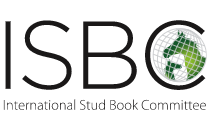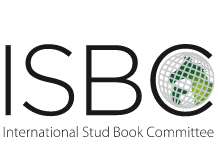WHO WE ARE
WE ARE THE BODY WHICH ESTABLISHES THE STANDARDS BY WHICH ALL THOROUGHBRED STUD BOOKS AGREE TO OPERATE
ISBC REGIONAL ORGANISATION
Welcome to the website of the International Stud Book Committee, the body which establishes the standards by which all Thoroughbred Stud Books agree to operate. The ISBC came into being in 1976 (originally as the “International Stud Book Conference”) and has continued to meet each year since then to discuss matters of global Thoroughbred Stud Book operation.

WHAT WE DO
There are currently 69 Approved Stud Books worldwide, all of which belong to an ISBC Regional Body.
STANDARDS OF
OPERATION
Continually monitor, review and improve standards for operating and maintaining a Thoroughbred Stud Book through the Requirements and Guidelines for Gaining and Maintaining Approval as a Thoroughbred Stud Book and the relevant Articles of the IABRW.
INTERNATIONAL
TRADE
Monitor, review and improve standards for breeding, identification and international movement of Thoroughbred horses to facilitate the international trade of Thoroughbreds for breeding and competition.
FUTURE
TECHNOLOGIES
Ensure awareness of the use of future technologies (e.g. gene-doping, gene-therapy) and their potential effects on the integrity of the Thoroughbred, and to determine guidelines for their application.
EMERGING
STUD BOOKS
Work closely with emerging Stud Book Authorities to ensure that they meet the required standards of Stud Book procedures for ISBC Approval as a Thoroughbred Stud Book.
BUILDING
RELATIONSHIPS
Build stronger relationships between Stud Book communities and between all Approved Stud Books worldwide.
PUBLICATION OF
FOAL CROP DATA
Encourage the timely and accurate publication of annual Thoroughbred foal crop records and to ensure circulation to all Approved Stud Books worldwide.











